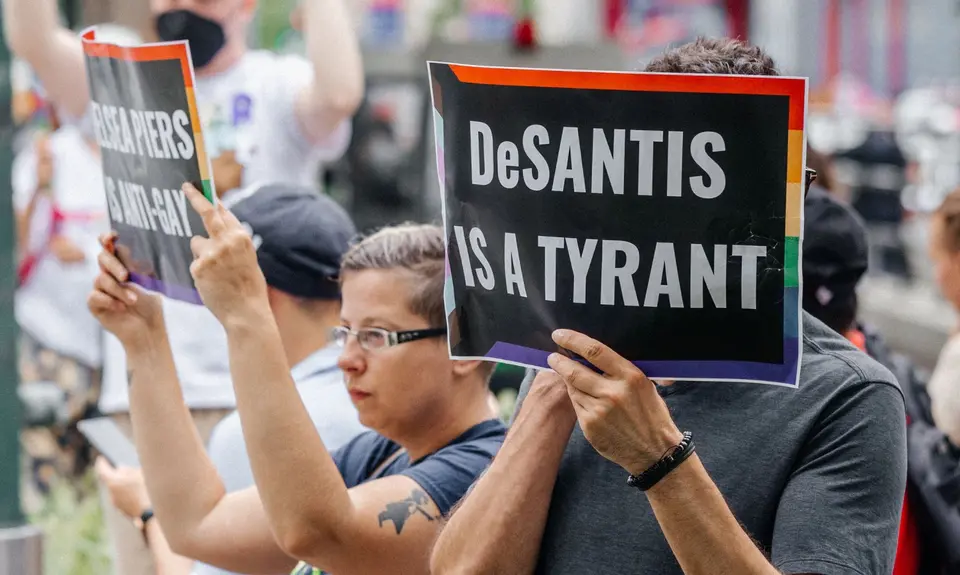By Sen. Shevrin Jones and Svante Myrick
This piece was originally posted in the Your Turn section of the Tallahassee Democrat.
As revelations pile up about the botched rollout of the AP African American Studies course, there’s plenty of blame to go around. The lion’s share likely belongs to Gov. Ron DeSantis, whose efforts to suppress the teaching of Black history are the latest in a series of despicable acts. DeSantis is building a political career on the backs of vulnerable people: returning citizens trying to vote, immigrants, and now schoolkids. It's wrong, and it’s up to us to push back – against DeSantis and all the right-wing politicians waging a war on education.
The threat that comes with scrubbing classrooms of “controversial” content is real and immediate. It’s possible to lose vital lessons from history in little more than a generation – and it’s happened before. In one of the clearest examples, we know that the horror of the 1921 Tulsa Massacre was almost lost to history, “ignored, unlearned and untaught” – except when it was pejoratively called a “race riot.”
In a sad echo of that erasure, now we read that the core of the AP African American Studies course no longer includes issues of mass incarceration, reparations or Black Lives Matter: topics foundational to contemporary Black history. Where will it end? Which movements, leaders and messages – which realities -- will be erased next?
Imagine some possibilities. If we teach students about Martin Luther King, but not Malcolm X, we blunt their understanding of history. The same is true if we teach a version of Dr. King’s life censored to discomfort no one, omitting his anti-capitalism and his complex personality. Will we erase Bayard Rustin? Jesse Jackson? Maybe Emmett Till will be just one little boy who died tragically. Maybe his story is divorced from a frank retelling of historic, genocidal anti-Black violence.
This seems unthinkable. But consider the case of Ruby Bridges. At 6 years old, Bridges was the first Black student to integrate New Orleans schools. Far-right activists in Tennessee tried to ban a book about her from local classrooms, claiming thatRuby’s experience being tormented by hostile white residents was too upsetting for kids to read about. Too upsetting to read about? A child younger than most of these students actually lived it.
Now the spotlight has shifted to Florida, largely because of DeSantis’s political ambition. But the issue is much bigger than one state. There is a broader war being fought against our ability to think, question, and engage in our democracy. And not just Black students, but all students, suffer. American kids will be less informed and less versed in critical thinking than students from around the world, unprepared to compete.
So, the question is how to fight back. We are angry at the Florida Department of Education’s craven behavior. We question the College Board’s failure to stand up to pressure about content deemed “controversial,” and demand it restore the curriculum to reflect the contemporary Black experience more accurately.
At the same time, we always come back to our firm belief in the power of representative democracy to improve people’s lives. And that’s why the ultimate answer lies at the ballot box. We need to oust politicians who use intimidation to stifle education, and support those committed to the freedom to learn. And maybe, if we want to do more, we need to run for office ourselves. Start with the school board. Be part of the solution.
What’s happening to education is ugly. But we can fix it, if we use the political process that is our birthright in this democracy. The time to do so is now.
What you can do
We're demanding that the College Board fully restore the coursework for the AP African American Studies class and holding them accountable for erasing our history.
About the authors
|
Sen. Shevrin Jones |
|
|
Svante Myrick |
